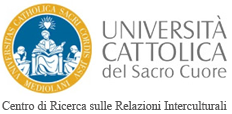|
The Romani population comprises five large groups, each of which in turn includes a number of subgroups.
- Roma: In Europe, chiefly in the Balkans and in Central-Eastern Europe.
- Sinti: In the Northern areas of Western Europe, in France and in Northern Italy.
- Kale or Cale: Meaning “black,” various groups in Finland, Wales, Spain, Portugal, Brazil, Algeria and Iraq.
- Manouches: France and Italy (Sinti population in Piedmont).
- Romanichals or Romaniche: England, North America and Australia.
|
|
The Romani population essentially comprises five main groups, each of which in turn includes many subgroups or communities with a variety of different traditions (...).
Each of the five main groups--Roma, Sinti, Kale, Manouches and Romanichals--is mostly concentrated in a specific area of Europe, but because of their incessant migrations in every direction, different subgroups or communities can be found anywhere. Currently, in Europe, the Roma are to be found chiefly in the Balkans and in Central and Eastern Europe. As we have seen, there are also long-established communities in some areas of Central and Southern Italy.
The place of origin of the Sinti (singular: Sinto) is clearly spelled out in their ethnonym: they come from the Sindh, an area in the North-West of India (now Pakistan). Therefore the ethnonym 'Sinto' is also a toponym. The Sinti speak Romanès or Sinto, a dialect of the Romani language with many words borrowed from German. The Sinti are mainly to be found in the Northern regions of Western Europe, in France, and in Northern Italy (…).
The name Kale or Calè (with or without the accent, these words are the masculine plural of the single nouns Kalo or Calo) comes from the Hindi adjective 'kala', meaning 'black'. The Kale described themselves as 'black' because of the colour of their skin compared with fairer-skinned Western populations. Rajko Djuric (1993) traces this ethnonym back to Kalinga, the name of an Indian ethnic group, or to the goddess Kali. The Romani communities of Finland and Wales call themselves Kle, Calé in Spain, and Calaos in Portugal. Some Romani groups in Brazil call themselves Calaos, and Kaulja in Iraq and in North Africa, especially Algeria.
The name Manouches comes from the Sanskrit term 'manus', meaning 'man, human being'. In many dialects of the Romani language, the same term, also in the form 'murs', also means 'husband'. The Manouches are to be found mostly in France, and in Italy there is a corresponding community of Sinti people in Piedmont (…).
The Romanichals or Romaniche (this ethnonym recalls the definition given by Jan Kochanowski, 'Romano Chave') are mainly settled in England, but past deportations have spread them as far afield as Australia and North America. Their ethnonym derives from two Romanès words: the adjective Romanì, and 'chals', or 'chels', coming from Romanès 'chavo/chave', meaning 'child/children' but also 'young one/ones'. Therefore the literal translation of the term should be 'the Roma children/young ones'.
From: Spinelli S., “Rom, genti libere” [“The Roma, Free People”], Dalai, Milan 2012, pp. 158-159.
|




